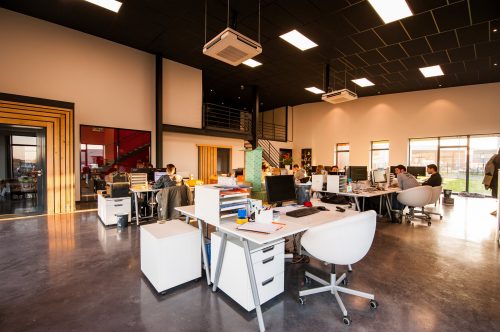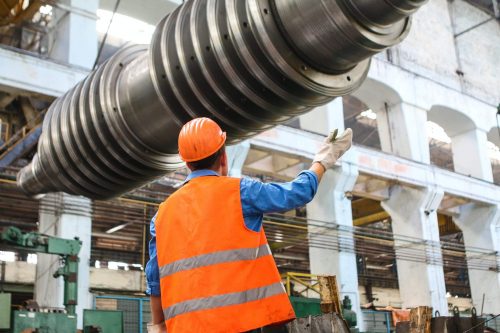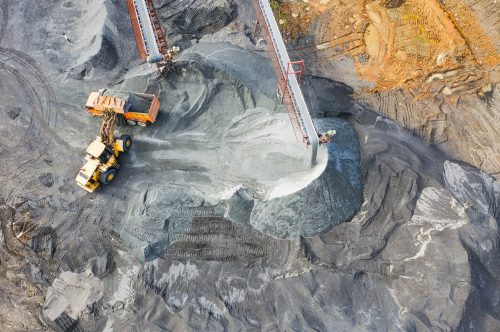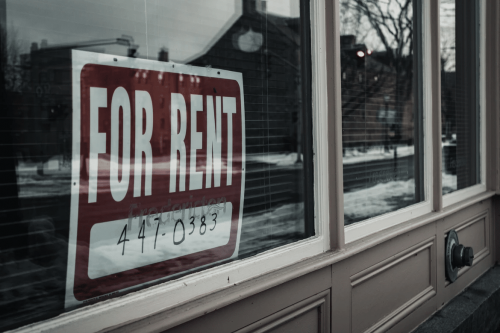Trading cryptocurrencies is becoming more popular nowadays, and people are finding more ways to earn money other than their jobs.
Another great way of investing is through Canadian real estate. Investing in real estate is one of the best ways to earn money and gain financial freedom. If you want to learn about the ins and outs of this trade, our specialists curated everything you need to know in this real estate investment guide.
How Do You Start to Invest in Real Estate?
The real first step is learning how to begin to invest in real estate. Here are all the factors you need to consider to get started.
Goals for Investing in Real Estate
There are many questions to ask before beginning the real estate investing journey. These include:
- What is your goal in real estate investing?
- Do you know what things to invest in?
- How is the financial situation?

Like every goal to achieve, it is always a good idea to use the SMART Goals.
SMART goals are specific, measurable, attainable, realistic, and timely. Using these goals will make your path to making good investments easier, more organized, and real.
Guidance From an Experienced Real Estate Investor
Getting help from a real estate investor will vastly improve your understanding and knowledge of real estate investing as a whole. Real estate investors know the ins and outs of the housing market, which could be valuable information when investing in real estate.
Want to invest in a house located in a place where people need homes? Want to know how the housing market works to check the values of houses from time to time?

A seasoned investor will provide you with great guidance in the market of real estate! They’d even tell you how online brokers and Robo-advisors work in the industry. Therefore, your initial investment will be a success if you managed to talk to a professional about it.
Do a Real Estate Market Analysis Before Proceeding to Invest in Real Estate
While we advised asking a professional for help, don’t bank everything on them.
Always do your research before starting to invest. If you come into the market blind, you’ll waste unnecessary amounts of money. Familiarize yourself with the different markets – the rental market, the real estate market, the stock market, the housing market, and other markets concerning these investments.
It never hurts to familiarize yourself with the different investment properties. If you want to buy properties, you need to be familiar with the different properties and their values.

What if the rental property you want to buy has a past performance in value that did not go well? There are many things to consider, so you need to study the market.
Target Market
Your investments would be pointless if no one rents it or buys it.
If you want a successful investment, you need to understand your audience. If you plan on investing in a condominium, your best bet is to target that towards working adults.
If you plan on investing in a house, you’d want to target adults looking for a place to settle in or if they are a big family. Understanding your target market is key in having a successful investment.
What Property You Should Invest In
The investment process truly begins here.

What property do you want to invest in? Does the property have a reasonable purchase price? There are many options for you; you need to take in all the factors before proceeding.
Are you financially stable to commit to this investment? Can you maintain the property correctly? You can always ask property managers to assist you in these proceedings, but the final decision lies with you at the end of the day.
You want to look for an investment property with appreciation potential, and its value increases over time. Renovating any property like rental properties have great potential in increasing their capital appreciation and value.
Where Should You Invest
You want to explore your options when investing in an investment property.
Putting importance on the location of your investment is essential. Getting the best location will only give you high yields.

Locations are not just the place to consider. You need to know your locations’ economic situation and employment, environmental and educational conditions. Having a good understanding of this will make you careful in choosing what to invest in.
Are You Financially Capable of Investing?
As our team mentioned in this real estate investment guide, investing involves a hefty sum of money.
You have to be careful if you invest when you are not in the best financial situation because the market is unpredictable. You either make a lot or lose a lot. You may think that you are not capable of investing but little do you know that you probably are capable of investing.
You have all sorts of properties you can use in your primary residence to trade for money that you can use for investing. Normal home equity can be taken as a home equity loan and used for a down payment when acquiring investment property.
When to Hire a Professional
If the real estate scene is becoming too complicated to understand, get help from a professional in the industry.

Real estate investors will guide you through the investment process. Do you want to know the different mortgage rates? Do you want to know how investors earn a steady income?
The professional will help you understand the bigger picture of the industry. You may want to buy several rental properties, but it turns out their appreciation value is low, but you did not know that; that is when the professional enters the picture.
What Are the Different Types of Real Estate Investments?
Residential Investment
Residential investment is an investment for people who want to make more money by constructing or buying new houses or apartments for the sole reason of living or renting.
In other words, these are investments that involve residential properties. Here are some examples of residential investments that you can do if you feel that this type of investment suits you.
Single-Family Rentals
Single-family rentals (SFRs) are investments in single-family homes that have the purpose of collecting rent from tenants.

SFRs are not limited to houses, as they can range from condos, townhouses, and other properties under single-family homes. If you invest in SFRs and have a tenant renting the rental property, tenants pay their rent to you, and you will earn rental income from it!
Are you worried about maintenance? You can do it the hard way and manage the rental property yourself. Or you can hire a professional property management company to handle the maintenance for you. Contact any property manager and discuss your terms from there.
Small Multi-Family
In comparison to SFRs, Small Multi-Family (SMF) deals with small apartments like walk-up apartments and other apartments that are much smaller in size than houses.
Investing in SMF is different from SFRs because it takes in more leases than SFRs. Different tenants can rent the rental property, usually paid through monthly rent. Having more tenants means you can be picky when choosing them.

The rental income you receive comes from the income property you invested in! Since SMFs are smaller than SFRs, it is much easier to sell!
Government Subsidized Rental
Also known as subsidized housing, government-subsidized rental (GSR) pays the rent with the assistance of the government or a private organization.
The GSR is similar to SFRs, in that the rental property is usually a house. The only difference is that the tenant renting the property has little to no income. The government will cover for the tenant.
This investment will give you less control and choice in your tenants since the government has a role in this part. It may be nice to give someone housing, but you will likely not get as much money as compared to a typical investment.
Vacation Rental
Vacation rentals are similar to SFRs, except they should be maintained properly and available for short-term rent periods.

For vacation rentals to be income-producing properties, they need to appeal to holidays—for example, a beach house or a house near the mountains. Property owners usually hire a property manager and company to maintain their vacation rentals.
Fix and Flip
The fix and flip involve buying an investment property, renovating it to increase its value, and then selling it to profit. While it may sound simple, there are many risks involved.
There are possibilities of operating expenses, unexpected costs, and the sudden fluctuation of the market.
There are also the possibilities of natural disasters that can destroy the property. Nonetheless, the fix and flip is a good investment strategy that carries many risks.
Commercial Investment
Commercial real estate investment is an investment for people and enterprises involved in buying and selling goods and services. These people and commercial properties are expected to generate good cash flow.

Some commercial real estate properties are office buildings, hotels, shopping malls, and other properties that generate cash flow. Here are the examples of properties:
Retail
Retail real estate is a commercial investment that focuses on marketing and selling consumer goods and services exclusively.
The businesses under retail are the common large businesses like malls and shopping strips. Although retail investments are costly, it always gives high yields.
The yields take in the percentage of the annual rental income, then divide the price you paid for the property. Investments for retail are usually made through a real estate investment trust (REIT).
Office
Office real estate leasing is commercial real estate office spaces for businesses.

Office spaces are categorized into classes A, B, and C. Class A office spaces are the best of the best. Although these are not the ideal first rental property to purchase, class A office spaces are the best in aesthetic, age, quality, and other factors!
Class B office spaces are the most common investments and the highest demand. These are often found in major cities. Seasoned investors usually buy this class solely for restoration.
Class C office spaces are the oldest investments. These are usually located in inconvenient locations and are in desperate need of maintenance.
Industrial
Industrial investments are investments in properties used for manufacturing and the like.

It is a great property investment due to its stability and long tenure, but its most significant risk is the swift advancement of technology.
Manufacturers may produce products outdated in 5 to 10 years, causing the investment to lose money and value.
Multi-Family
The multi-family commercial investments are similar to SMFs.
The main difference is that the commercial investments are much larger on the scale. These properties range from mid to tall buildings, garden-style complexes, and others.

It has similar benefits and risks as the SMFs, and it is common for new investors to invest in these properties with partners of a REIT.
Land Investment
Land investments are investments that people take to own land.
These investments are arguably the most challenging, most expensive, and most daunting investments to make. But do know that the rewards of undertaking this investment are massive.
Investing in land is one of the best ways to increase your net worth because the land value will always increase! Although it is extremely expensive to commit to this investment, its benefits outweigh its drawbacks. Here are some land investments that you may want to consider:
Commercial Development
If you want to acquire land for the sole purpose of commercial intentions, you can invest in land for that purpose!

Investing in commercial development requires working with a seasoned architect and the local government to ensure appropriate zoning of the land area. Commercial development requires a lot of patience and hard work.
Residential Development
Residential development mainly focuses on residential properties and residential uses in an area.
This investment requires working with an architect and the local government like commercial development. No matter what land investment you want to commit to, it will require the government’s role because of land and ownership processes.
Farming
Farmland investments are some of the riskiest investments to make but often can be some of the most rewarding.

Farmland can provide income if rented out by the tenant. It can also provide development goals that need to be accomplished. However, the nature of the farm and agricultural use will make the government impose property taxes on the farm.
Mining
Mining investments are made for those that want to invest in properties that give access to desirable resources.
In the short term, it provides cash flow for the minerals [1] produced. The cash flow is directly proportional to the value of the minerals.

So if the minerals get devalued, then the cash flow devalues. For the long term, appreciation is highly likely, and if the mineral production is done, development opportunities may come.
How Do You Invest in Real Estate?
If you want to begin investing, where should you do to start? These are the different ways to start investing in real estate.
Primary Residence
One of the most common and oldest ways of investing is purchasing a primary residence. Buying a primary residence is like buying a long-term investment. You make your mortgage payments, and you expand your net worth!
When purchasing a primary residence, you need to save – save enough money to match the primary residence’s down payment. Once that is accomplished, use that down payment to take out the conventional mortgage of the property.
Rental Properties
Rental properties are solid investments for people starting in the investing industry.

Investing in a rental property is an active investment, meaning for the investment to succeed, you need to actively look for tenants and maintain the property to ensure its value.
However, you can always hire a property manager to manage the property for you. If that’s too much for you, you can manage the property as the landlord.
While rental property investing is relatively straightforward, mortgages make it difficult. Mortgages operate differently here than a house you intend to live in; rates are usually higher for these properties. These can make you lose rental income. Getting a mortgage broker will greatly help you find the lowest and best offers for you.
Commercial Properties
Commercial properties are an excellent investment because of their high yield.

The biggest drawback of investing in these properties is that they usually have an extremely high purchase price.
The typical commercial property can cost around $1-$2 million. If you want to somehow invest in these without spending a lot, you should invest in the company’s mutual fund!
Vacation Properties
Did you know that you can invest in properties like a beach house?
Investing in a vacation property will garner you a decent amount of money simply from rental income. Although these properties often have a high purchase price, another way to invest is to buy a timeshare.

With timeshares, you and other owners co-own the vacation property. This means sharing the costs and usage of the property. If you are not ready to own these properties on your own, then consider buying a timeshare!
Real Estate Investment Trust (REITs)
Real Estate Investment Trusts is a company that operates many kinds of commercial properties like offices, shopping centers, and more.
Similar to mutual funds, REITs pool investors’ money investing in their system. Investors avail to REITs because the company allows the investors to earn dividends from their investments without buying, managing, or worrying about the finances in their properties.
Like any public company, REITs allow you to purchase shares of publicly-traded REITs. Despite REITs not necessarily focusing on investing in rental property, the company lets you invest by purchasing their shares.

REITs do not require a lot of down payment for you to invest in them. You can invest as little as the share price!
Pros and Cons
Real estate investing has many extreme highs, but it also has extreme lows and can potentially damage your financial situation. As a rundown of our real estate investment guide, here are its pros and cons.
Pros of Real Estate Investing
- You do not need all the money in the world to invest in real estate
- You can purchase real estate below market price
- Investing in real estate provides steady cash flow
- Investing in real estate has lower risks than investing in the stock market
- Owning real estate makes you have control of multiple properties
- Long term investment in real estate will make it appreciate over time
- Real estate allows you to actively control your investments
Cons of Real Estate Investing
- Investing in real estate takes a considerable amount of time
- Real estate requires good maintenance to keep its value
- Real estate, like a rental property, can lose value
- Real estate cannot be liquidated; this is bad if you need cash as soon as possible
- Real estate is subject to property taxes and even state income tax
FAQ
How Much Down Payment Do I Need to Begin to Invest in Real Estate?
Do you have any personal loans or any traditional mortgage that keeps you from investing? If you want your initial investment to be good on the get-go and if you plan on actively investing, a down payment of at least 5% on a home with a purchase price under $500K is required.
If you want to invest in rental property, you must make at least a 20% down payment. This may sound like you need a lot of money to start investing, but that’s not true. If you invest in REITs and mutual funds, you can invest as little as the share price.
There’s no need to worry about how much down payment you need to begin investing because you can start no matter the income level you are at!
What Makes Real Estate Investing Stand Out Compared to Other Investing Methods?
Real estate investment allows your cash flow to correlate with your decisions. Your actions and decisions are what will make your investments in real estate succeed or fail.
You are also not limited to one property to invest in. You can expand your property portfolio and make even more investments you think will work for you. You can even make portfolio loans for savings and better condition purposes.
In short, investing in real estate gives the investor the freedom to choose what he wants to do with his investments compared to stocks, bonds, and other investment techniques. You should also invest in real estate if you desire more control and less volatility.
What Are the Tax Benefits When Doing Real Estate Investing?
There are tax benefits when you invest in real estate. One of the most popular benefits is the triple net lease (NNN).
An NNN lease is when a tenant rents a commercial property in its entirety. This means that the tenant is solely responsible for all the costs except for structural repairs and maintenance.
One of the most common reasons people commit to this investing technique is the passive income and its pass-through deduction. The Tax Cuts and Jobs Act allowed businesses that earn qualified business income to pass up to 20% of taxable income.
However, keep in mind that this tax benefit is best for profitable businesses with good cash flow.
Conclusion
Real estate investing can be the most rewarding or the most damaging investing. It has the highest highs and the lowest lows. That is why many people often get intimidated by the idea of investing in real estate.
With this real estate investment guide, our specialists hope that you were able to grasp the idea of how real estate investments work. We may not have discussed many nuances and tricks in detail, but hopefully, the general idea of the topic will let you explore the market.
In sum, real estate investing is basically “high risk, high rewards.”






